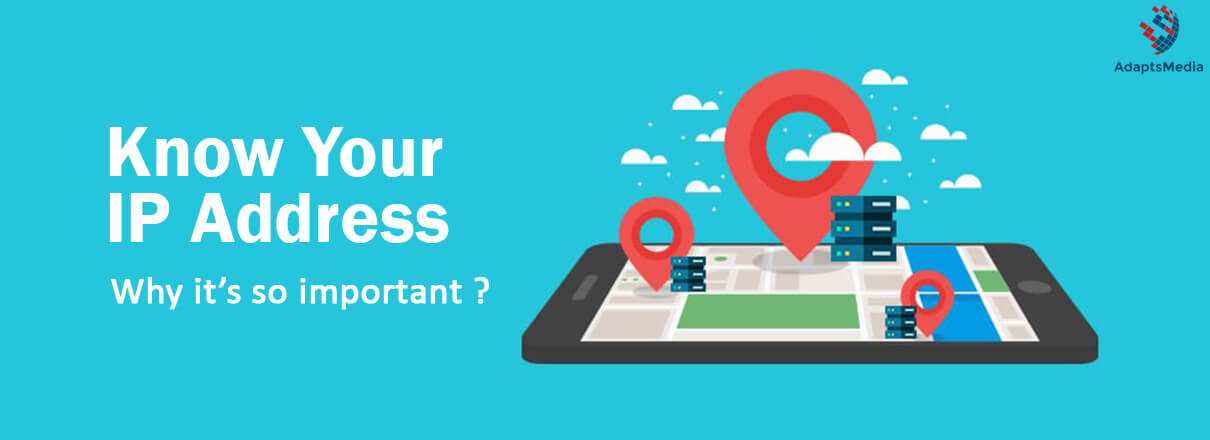Who hasn’t heard the term ‘IP Address’? It is one of the most commonly used terms related to the internet and can be heard quite frequently. Remember, some apps were banned from the Google Play Store, and others were classified as malware – one thing that we heard in common is that they are hacking your IP address.
So what is this IP Address, and what makes it so critical that people go gaga over it and its security?
In this blog, we’ll look into the various aspects of this technical term and break it into simple information.
Let us begin by addressing the million-dollar question, what is an IP address?
What Is an IP Address?
Internet Protocol address, commonly known as IP address, technically is an identifier used to send or receive data information over two or more devices connected over the internet. The IP address can be considered as the postal address of every device on the internet in layman’s terms. It‘s a string of numbers that are separated by a period. Each IP address consists of 4 sets of numbers in a single string.
Looking at the string, you might think that it’s just a bunch of random numbers. As a matter of fact, the IP address is not just another set of random numbers. Each IP address is produced mathematically and allocated by the Internet Assigned Numbers Authority (IANA) – a subdivision of the Internet Corporation for Assigned Names and Numbers or ICANN. The four sets of numbers can have any number from 0 to 255.
How Does the IP Address Work?
As we have a brief idea about what IP address means, let us discuss how it works and why it is so important to pay attention to your IP address.
Technically speaking, the Internet Protocol is a set of guidelines in a language that can be understood and followed by every device on the internet. All the functions like sending, receiving, finding data information by the devices are done following these set guidelines in the background.
Here’s a brief explanation of the backend process:
- Any device indirectly connects to the internet on a network provided to it by a particular authority that grants the necessary permission.
- Depending on the place where you’re using the internet, the network will by default be your own Internet Service Provider or the one used by the place.
- Now, as all the data movement is happening through the ISP, they provide each device with an IP address that is singular in nature. No two devices can have the same IP address.
- One thing to remember is that every time you connect to the internet, your device gets a new IP address.
Types of IP Addresses
Based on their function and nature, IP addresses can be classified into different categories, and even the categories can be furthermore divided into more types.
- Consumer IP Address
Consumer IP addresses are owned by individuals, but mostly Companies. For example, when the individual or company buys a service plan from an ISP, one personal IP address and a public IP is provided to be used inside and outside the network.
- Private IP Address
All the devices connected to your internet, like smartphone, laptops, computers, etc., have a private address. Even the recent Bluetooth and Internet Of Things enabled devices will have a separate IP address.
- Public IP Address
Though all the active devices on your network have their separate addresses, the whole network has an IP address of its own. That is known as the Public IP address. It connects your router to the ISP’s network. And all the other devices not connected to your network will need this IP address to locate a device. Again, public IP address is classified into the following:
- Dynamic IP address
A dynamic IP address is the most commonly used type of IP address. It is used by both individuals and companies. An ISP buys a bulk of addresses and assigns them to its clients automatically. At times, they also reshuffle the lot and allot the old, unused addresses to new customers.
- Static IP address
Static addresses are rarely used. However, if someone plans to host a server of their own, it needs to have a static address as the devices connected to it will not be able to locate it over dynamic addresses. The Static IP address makes sure that the connected devices are in constant contact without any loss of data.
Why Are IPs Considered Crucial?
No, why do we consider IP addresses to be so necessary?
As you’ve understood by now, an IP address is a gateway to your device as long as it’s connected to the internet. This makes IP addresses vulnerable to outside attacks from hackers and other cybercriminals.
Some of the most common ways that they can hamper you by attacking your IP address are as follows:
- Online Stalking
One of the most common forms of cyber attack is online stalking. Hackers using particular tools can easily track all your movements as well as collect your personal information by stalking your online activities. For example, we often end up giving away our IP address through several video games, websites, online chatting platforms, etc. Hackers can collect the IP address and track the real-time location and other information about the user.
- Illegal Downloads
Downloading illegal contents using your address is also another popular form of cyber attack. After getting your IP address, the cybercriminals will use it to download illegal content, making you responsible for the crime.
- Causing Harm in Real Life
As attackers can track your location and get a complete idea about your residential address, you’ll be vulnerable to threats like burglary.
- Hacking and Controlling Your Device
Hacking is not only limited to taking over your IP address but rather much more than that. For example, using your IP address, the hacker can access your device and steal all your private information stored on it, like bank details, passwords, etc. They can also install malware on your device.
What Measures Can You Take?
All these factors make IP address a key component in our digital lives. And so necessary steps need to be taken to protect it from any sort of unwanted threat. Here are some things you can do to keep your IP address safe from falling into the wrong hands.
- Using a Proxy server
A proxy server is an intermediary server between your network and the internet. All the traffic is circulated through the proxy network, leaving your original network safe.
- Using VPN
s
Virtual Private Network or VPN creates a connection between your device and the internet through an encrypted virtual tunnel that acts as a safety net. Using VPN will hide your real location and bounce the data from several other places over the world.
- Using a unique password
Creating a unique password is one of the simple things you can do to prevent any such attacks. All you need is to make it as difficult as possible. Remember not to use easy information like your name, birthday, etc., as they can be broken very easily by criminals.
We hope you have a better idea of the IP address and its importance now. Following the instructions mentioned above will ensure your safety in the digital space and keep cybersecurity threats at bay.
Don’t miss out on the opportunity to gain a competitive edge. Contact our team for expert assistance.

